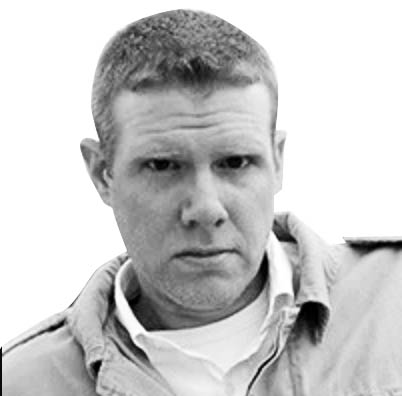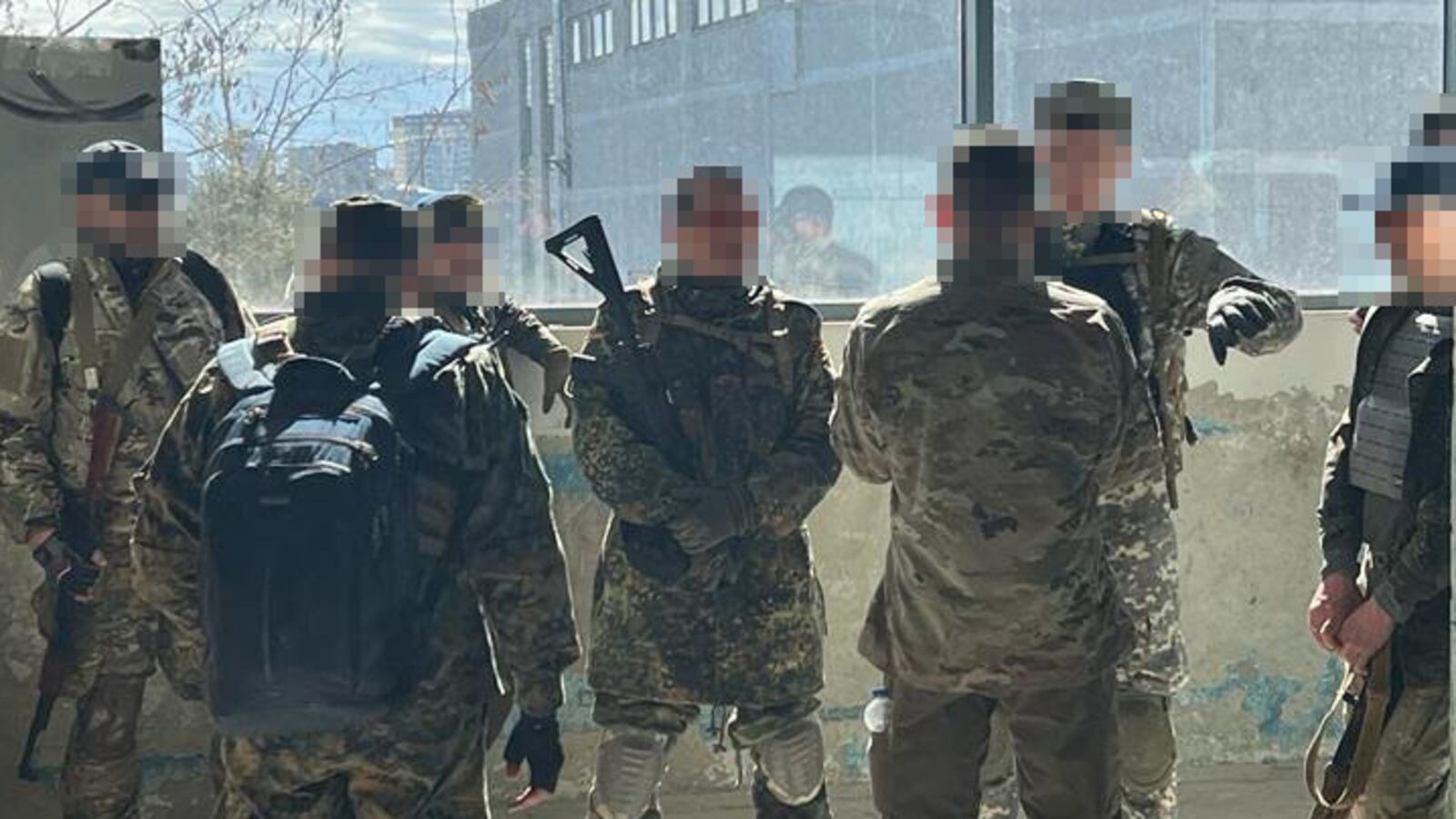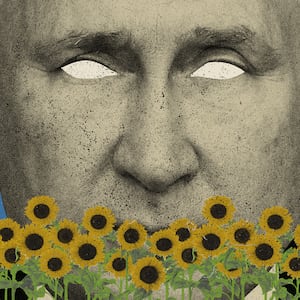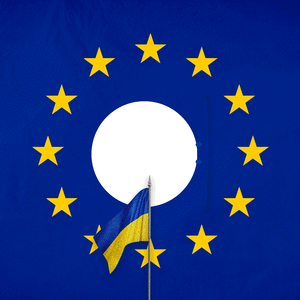It’s called the Self-Defense Training Center (SDTC), which sounds like the name of a generic martial arts dojo in a suburban strip mall. But don’t be fooled by the handle. The SDTC is in fact a Ukrainian NGO committed to a cause as noble as it is bad-ass.
The SDTC is based in the western city of Lviv, which became Ukraine’s shadow capital last February as certain government offices, international consulates, and media outlets fled Kyiv ahead of advancing Russian forces.
As civilians across the country took up arms and braced themselves to defend their homeland, a handful of American veterans traveled to Ukraine on their own dime in order to train these everyday men and women for combat.
“Everybody there who’s training is a volunteer,” said Adrian Bonenberger, one of the original trainers in the SDTC program, which he helped kick off in early March. “The whole point is to give people training based in democratic and egalitarian principles as expressed by Western militaries for small-unit leadership,” said Bonenberger, a former Army captain who twice deployed to Afghanistan.
Bonenberger told The Daily Beast that the tactics being taught to the SDTC cadets “depends on a different type of leadership than you see in Soviet-style armies, which tend to revolve around authority and an officer.” By contrast, Bonenberger said, in the Western military tradition “your authority derives from your competence.”
Bonenberger, who rotated home to New York City after a few weeks in Lviv, said that the Western style has practical advantages for the battlefield: “You get a much better fighting unit that way. [A] unit where people like each other, depend on each other, and trust their leadership.”
Former Army Ranger Dan Blakeley, who arrived in Lviv shortly after Bonenberger shipped out, told The Daily Beast that the standard course lasts between two to four weeks, and that the SDTC’s mission statement was rooted in “teaching basic defensive tactics, first aid, and leadership” to the cadets.
“All cadets are civilian volunteers, and of those who join the program, many have never held a gun. So we start with the basics [of] weapon handling, marksmanship, tactical combat casualty care, battle drills, verbal and non-verbal communications,” as well as hand-to-hand and urban combat techniques.
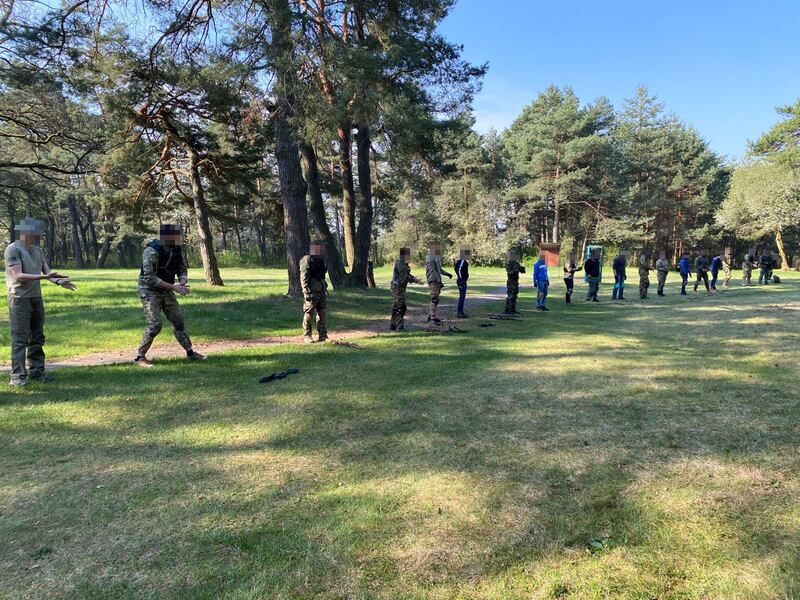
Blakeley described the SDTC as a decentralized organization that depends on local stakeholders in the community to provide storage facilities, training grounds, and housing for U.S. trainers.
He said room-clearing skills were honed in abandoned factories, private fields were used for outdoor target ranges, and local woodlands provided space to practice “cover and concealment” techniques since “that’s probably the environment where [the cadets] will end up fighting.”
Blakeley said he had heard of the SDTC program from a friend, and that he’d been motivated to participate by “the horrors of this war, the scenes in Bucha, Mariupol, Kharkiv, and the unwarranted killing of civilians… I knew I had to do something.”
Another volunteer trainer, former USAF officer Jeremy Fisher, who is now in Lviv, said that there were currently “40-50 cadets in various phases of training.” Fisher also said he has no regrets about his decision to put his life on hold and cover costs to pay his own way into a war zone.
“If ever there was a cause worthy of supporting, this is it. The passion, appreciation, and resolve of this country is the only thing greater than the pain being inflicted,” Fisher said.
SDTC’s cadets could end up joining the Territorial Defense Forces [TDF], which is made up of civilians, or be drafted into the Ukrainian Army. Either way that could mean seeing frontline combat.
Once a cadet joins the TDF he or she might be stationed in Lviv or sent elsewhere to shore up Ukrainian forces. However, the SDTC and the TDF remain unaffiliated organizations. That distinction is important, because the American instructors would be barred from training active-duty members of the Ukrainian armed forces by the U.S. government. But since members of the SDTC are civilians, there is no legal impediment to training them, according to Blakeley, who denied any official U.S. involvement in the program.
“The cadets have a healthy balance of respect for the challenge ahead of them, and a confident expectation of success,” Fisher said. “I’m so fortunate to be in a position to stand by them. It’s sincerely humbling.”
“When I am called to war I will be ready.”
The cadets interviewed by The Daily Beast also reported being in good spirits, despite the challenges ahead.
“People support each other and everyone works for our victory,” said a cadet who asked to be identified only as Petro for security reasons.
“I met many highly motivated people at SDTC, who are ready to go to the front and fight for their country. Many became my good friends. I am glad that such an organization exists and trains people,” said Petro, who spoke to The Daily Beast while hunkered in a bomb shelter after an air-raid warning in Lviv.
Petro, who recently lost his best friend to the fighting, said that his main motivation for joining the SDTC was “to be prepared for war, to be able to protect my country and relatives from the Russians occupiers. I can also be drafted into the army at any time, so I want to prepare as much as possible.”
Another cadet, Ross, said that like many of his cohorts he came to the SDTC without prior training.
“I had no military experience. I worked as a logistics manager before the war, so when Russia invaded, I needed to gain military knowledge. Instructors who come to us [from America] with military experience and share this with us are very important to me personally,” said Ross.
“I gain practical skills and it also gives me peace of mind, because when I am called to war, I will be ready,” he said.
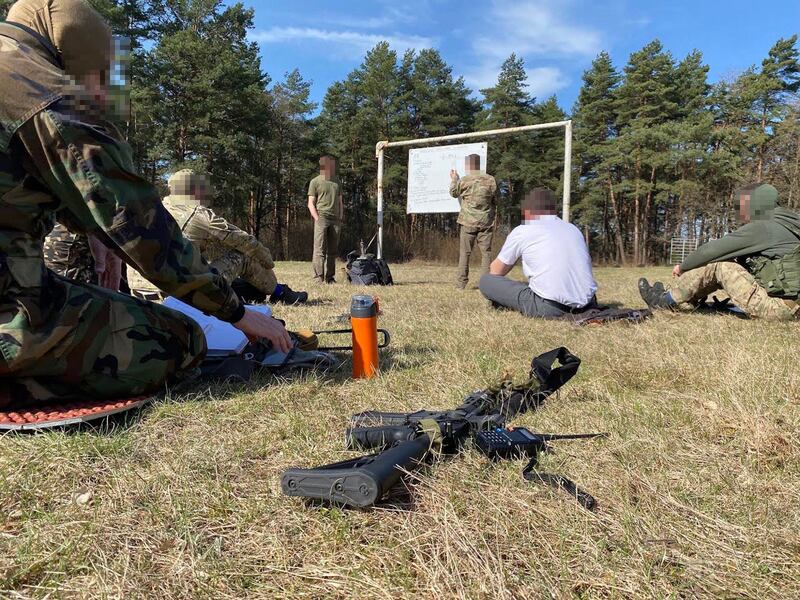
Cadet Petro also said the training eases anxiety about eventually seeing combat.
“I learned how to behave in war, how to use weapons, how to move tactically, how to lead a group, and how to behave during artillery shelling. But the most important thing for me is morale. The knowledge gained reduces uncertainty and fear and I know what to do when I’ll get on a front,” said Petro, who has enrolled in multiple courses with the SDTC over the last two months.
Another trainee who’s enrolled multiple times in the programs is attorney Oleksiy Dovbush. Dovbush is a life-long resident of Lviv who worked with the U.S. vets to help found the center and who currently serves as the local director.
Dovbush expanded on the curriculum the SDTC offers the cadets, saying it includes reconnaissance, setting ambushes, land navigation, identification of enemy vehicles, and “an introduction to international humanitarian law.”
SDTC head Dovbush was quick to explain that the program was a stop-gap effort and not intended to serve as a full-scale boot camp.
“Training at the Training Center cannot be considered sufficient for military service and should be viewed as a foundation for further personal development in this direction,” Dovbush said.
Dr. Robert J. Bunker, the research director at the security consultancy C/O Futures LLC, echoed Dovbush’s concern, and said the best that could be hoped for is that basic training would likely make the cadets “frontline combat-capable” to face Russian forces.
“The new troops won’t have thought processes or muscle memory honed by repeated drills and training so under combat stress—artillery bombardment and direct infantry weapons fires—their performance will initially suffer,” Bunker said.
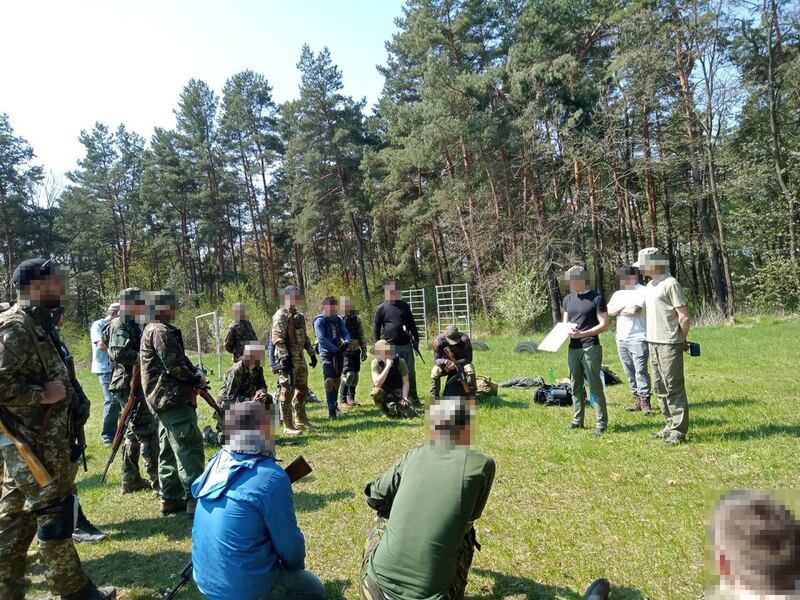
“How many of you believe you will end up on the front lines?”
In most mainstream U.S. media coverage of the war, the narrative battle lines are clearly drawn. The Russians are routinely denigrated as bumbling, foolish, inept both tactically and strategically—as well as being on the wrong side of history.
Moscow might be warmongering, but that doesn’t mean the Ukrainians aren’t taking heavy casualties, even if Americans aren’t hearing much about such losses at home, Blakeley said.
Bunker agreed.
“If the Ukrainians are suffering heavy losses—which is likely given how the combat environment has shifted to the Donbas, which is more open ground—it would be expected that they would be downplayed to keep their morale up in support of the overall war effort.”
For the cadets, that rate of attrition translates to a high probability that they’ll eventually be mobilized into the TDF or conscripted into the traditional armed forces. And, despite the anti-Russia propaganda, they appear to be very aware of this harsh reality.
“I once asked the question of the cadets ‘How many of you know someone who is actively serving on the front lines?’ Every hand shot up,” Blakeley said. “I then asked ‘How many of you know someone who has died on the front lines?’ Again every hand shot up. When I finally asked, ‘How many of you believe you will end up on the front lines?’ Almost all hands shot up. That’s both an unnerving and grounding response.”
The willingness for self-sacrifice and devotion to the homeland is in stark contrast with the morale exhibited by Russian soldiers, said Futures director Bunker.
“The majority of the Russian troops really want nothing to do with the invasion, don’t understand why they are in the Ukraine, and sure don’t want to die for the glory of Putin’s authoritarian police state,” Bunker said.
Whereas Ukraine sees itself in a life and death struggle, “Russian society is not on a war footing—the conflict is still very much being treated as a sideshow,” he said.
Cadet Petro said the gravity of the situation makes him all the more grateful for his American combat instructors.
“I want to thank all the Americans who help my country… This is a war about the values that Americans and Ukrainians have in common. It is a war of democracy against despotism [and] tyranny. In general, it’s a war for freedom,” Petro said.
SDTC instructor Blakeley said that the resolve, unity, and pride on display in Ukraine reminded him of “the first few months post-9/11 in the U.S.” He also said the Russians may have miscalculated the extent to which their invasion would be seen as an existential threat to traditional Ukrainian values.
“This tragic and senseless war has bonded Ukraine [together]. And that alone may be the determining factor for why Ukraine will win this war,” Blakeley said. “Because for them, there is no other option.”
